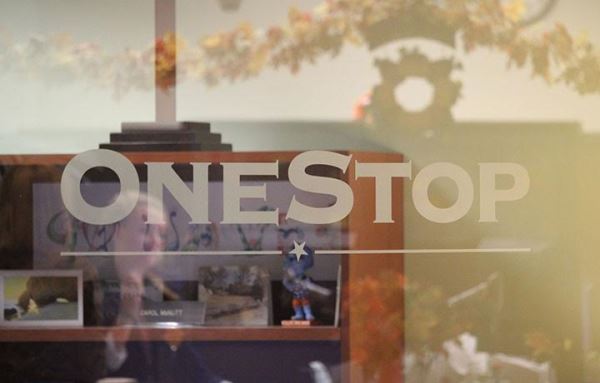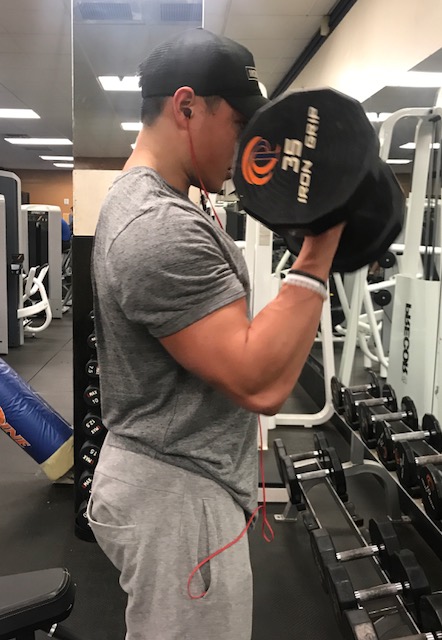
Go Greek: two words, one big decision.
Whether students reside at a state school or a private institution such as Pepperdine University, they can perceive the Greek system to be a dominating part of student life. However, at Pepperdine, students unaffiliated with the Greek system are just as happy as the ones who join it.
“I think my social life is fulfilling enough as it is,” said Anna Boerwinkle, a freshman sociology major and unaffiliated student. “I have a solid group of friends, and I’m happy with that.”
Only one out of four students are affiliated with a sorority or a fraternity at Pepperdine, Doug Hurley, director of Student Activities and Campus Recreation, said. That’s slightly higher than the University of Southern California, where 22 percent of students are involved in Greek Life, said Beth Saul, director of Fraternity and Sorority Leadership Development at USC. Only 15 percent of students participate in Greek Life at the University of California, Los Angeles (UCLA), said Jose Garcia, assistant at the Fraternity and Sorority Relations office at UCLA.
Nationally, most universities see 20 to 30 percent of their student body participate in Greek Life, though some universities boast participation rates as high as 80 percent, according to Niche, a ranking website started by Carnegie Mellon graduates that includes data on Greek Life.
The Graphic surveyed 51 students about Greek Life at Pepperdine, 24 affiliated and 27 unaffiliated. All non-Greek students interviewed said they were happy with their choice not to go Greek. Of those who did not join, eight said it was for financial reasons, four said they didn’t have time, and 16 said it simply “wasn’t for them.”
“It’s a little expensive to be a part of them, so you know, if you’re already stretching your dollar to go to Pepperdine, to try and be in that (Greek life) too,” junior psychology major Jessica Boss said in explaining her decision to not go Greek.
Other students looked upon Greek Life with distaste.
“I think it’s just an organized faction,” Gabrielle “Gabi” Simmons, a freshman international business major, said.
Some upperclassmen look back at their freshman year and are happy for not joining Greek Life, Hurley said.
“I think everything happens for a reason,” Thomas Reinhard, a junior political science major, said.
Reinhard rushed twice. Although he came close, he never received a bid. He believes he has a “decent” social life without being a fraternity, especially because he already spends more time with Greeks than non-Greeks, Reinhard said.
“People confuse me with being in a frat sometimes because I hang out with a lot of Greeks,” Reinhard said.
Student Life can feel dominated by Greeks not because of their sheer numbers, but for how active they are on campus, Hurley said. More than 85 percent of student leaders on 730 campuses in the United States and Canada are involved in the Greek community, according to thefraternityadvisor.com. Patrick Daley, a former president for Pi Lambda Phi Fraternity at North Carolina State University and author of two books on improving fraternities, manages the website to give advice, statistics and answer questions about Greek organizations in the United States and Canada.
The same dynamic applies to Pepperdine. In fact, 20 of the 24 affiliated students interviewed said they are involved in campus activities outside of the Greek system such as Riptide, church house groups and campus jobs.
“When I work with orientation leaders I say, ‘Hey, how many of you are Greek?’ You know, 40 percent of them will raise their hands,” Hurley said. “That’s just part of the culture: to be Greek here is to participate in leadership.”
Although Greek students are involved in many student activities, unaffiliated Pepperdine students are not disadvantaged by not joining a sorority or fraternity. All but three of the non-Greek students interviewed are involved in campus activities such as the faith-based Young Life, campus ministry, student publications, theater and other co-curriculars.
In terms of leadership positions, the university wants both Greek and non-Greeks to be involved, Hurley said.
“You gotta find your thing, we’re not just Pepperdine students, we’re Pepperdine students who do this major or we do Jumpstart or campus ministry,” Hurley said. “There’s really no such thing as a bland Pepperdine student.”
All affiliated students interviewed said they benefited from the Greek system, principally in the relationships formed.
“It’s such a close knit group, that it’s kind of like finding a home away from home,” Daniella Brown, the Pepperdine University Graduate Assistant for Greek Life, said.
Greek members such as Syrii Daniel, a junior pre-med student with a psychology emphasis, agreed with the sense of community gained through Greek life.
“When I found a place that felt like home, I knew I had made the right decision,” said Daniel, a member of Delta Delta Delta and a former member of the track team. “Just having that support system of girls that were just like, ‘oh good luck at your (track) races’ that I had never had with girls before.”
Other benefits of Greek Life are leadership and job opportunities, Brown said. In fact, 71 percent of people on the “Who’s Who in America” list belong to a fraternity, according to thefraternityadvisor.com.
“I know I wouldn’t be where I am today without that (Greek Life),” Brown said.
Brown said she has had friends who were chosen from hundreds of thousands of applicants for jobs because of their affiliation with a Greek organization.
While upperclassmen like Daniel agree with the satisfaction and sisterhood (or brotherhood) that Greek Life provides, some upperclassmen decide to drop from the Greek system. Changing priorities, demanding internships and living off campus can lead juniors and seniors to drop out, Hurley said.
“They are just in another stage of life,” Hurley said.
Freshman students are the ones who usually feel left out for not participating in the Greek system, usually during Waves Weekend because of all the Greek events happening or when Greek members are fundraising for their philanthropies, Hurley said.
“I think you come here as a freshman with preconceived notions about what it means to be Greek,” Hurley said. “You’re not sure what to do, where to plug in and you see a lot of other students becoming Greek, there’s a lot of hype around that.”
Carissa Mosley, a freshman theater and media production major, said she felt that outsider status.
“There are times when a lot of your friends are in it and you feel left out,” Mosley said.
All students can “get plugged in” through other clubs and organizations on campus. Dance in Flight and Project Serve, just to name two, can foster the same sense of community as a fraternity or a sorority, Hurley said. Although many Greek members participate in both activities, the affiliation factor does not create barriers between students involved.
“There’s just a bond in it (Dance in Flight) and a unity formed where Greek or not it doesn’t matter, it’s just this common experience,” Hurley said.
Kristin Vartan completed this story in Dr. Christina Littlefield’s fall 2014 Jour 241 class. Vartan is affiliated with the greek system.



